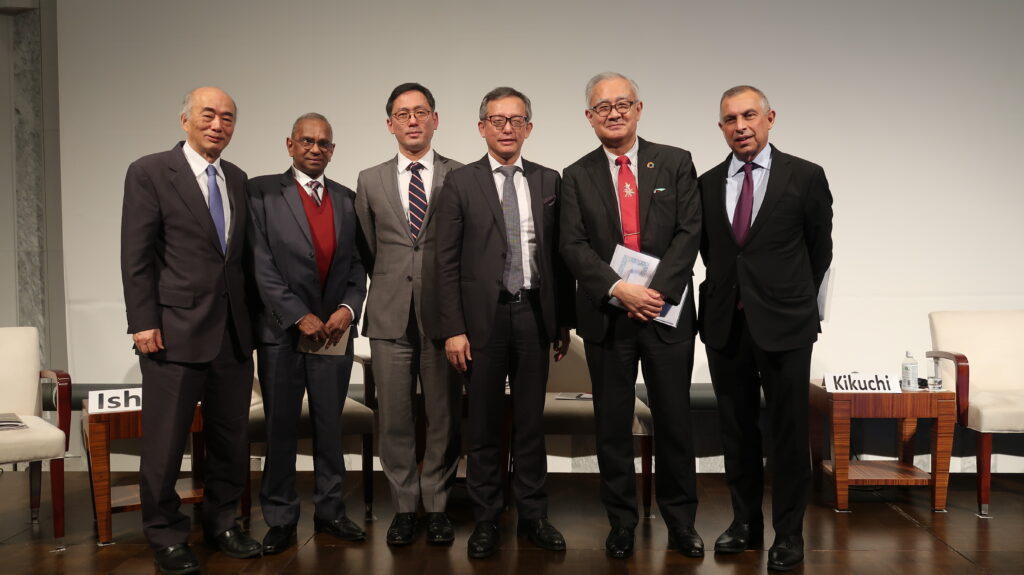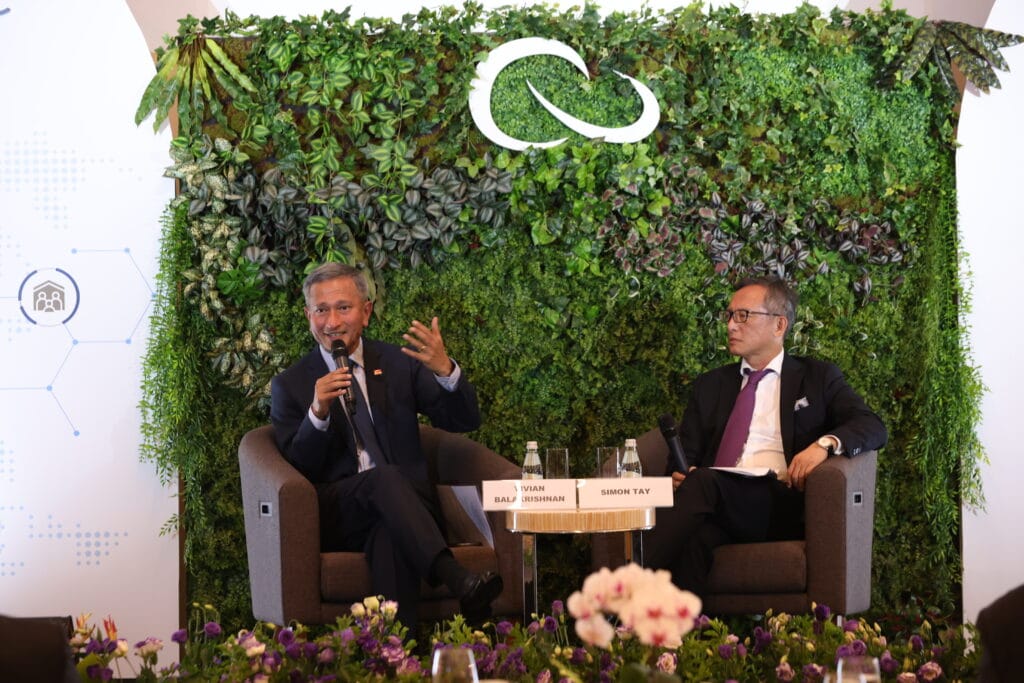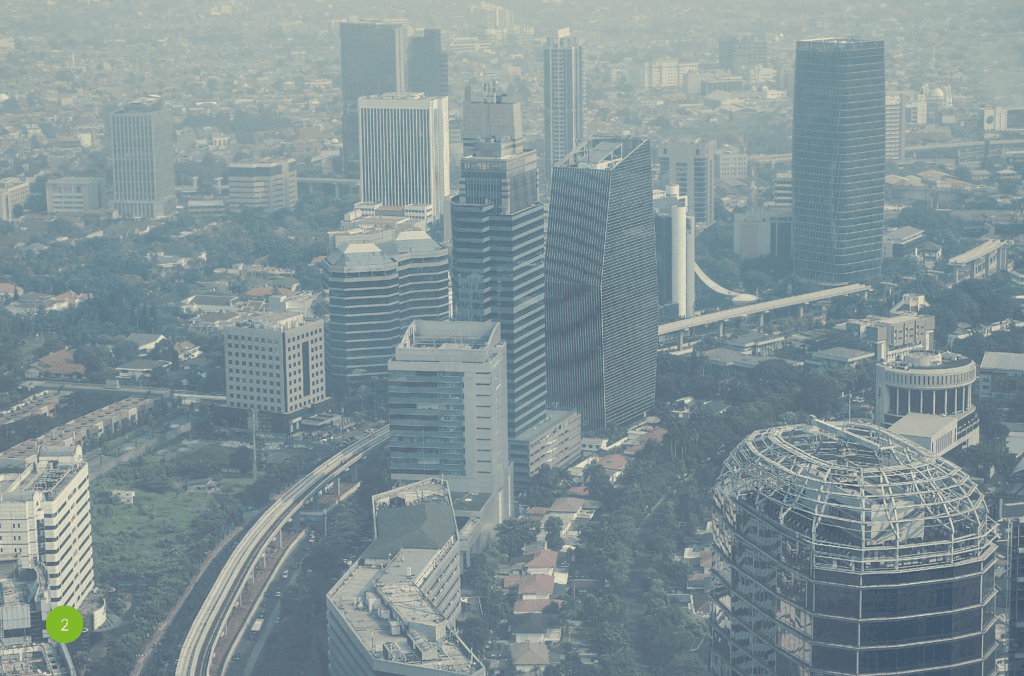Media Release
For Immediate Release
Regional partnerships a must for Singapore’s recovery, according to Singapore’s oldest and independent think tank
Singapore, Thursday, 9 September 2021 – Singapore should deepen its cooperation with regional partners and strengthen economic partnerships for the country’s post-pandemic recovery. This is according to the “New Horizons: Global and Regional Strategies for Singapore’s Future”, report launched today at the 13th ASEAN and Asia Forum (AAF) by the Singapore Institute of International Affairs (SIIA).
Following an earlier report by the Singapore government’s Emerging Stronger Taskforce (EST) in May 2021, the SIIA – as an independent think tank – is adding its own recommendations and responses. Looking specifically at opportunities beyond Singapore’s shores, the “New Horizons: Global and Regional Strategies for Singapore’s Future” report offers analysis and recommendations for post-pandemic strategies for the country. The report highlights global trends, such as the Sino-American tensions, supply chain disruptions, rise of the digital economy and divergence of growth accelerated due to the pandemic, and their implications for Singapore. (The PDF version of the report is available for download on the SIIA’s website here.)
The inputs for the report were drawn from the New Horizons series of closed-door roundtable dialogues held with the SIIA’s Roundtable and Corporate members and business leaders as well as the Institute’s policy analyses. The New Horizons series was held from August to November 2020 when the SIIA was serving as a knowledge partner to the EST.
The report identifies ten recommendations for action in four main areas:
Pandemic Assistance
1. Redouble Pandemic and Healthcare Efforts across ASEAN: Singapore can assist with initiatives to fight COVID-19 as well as longer-term strengthening of healthcare services in the region.
2. Restart ASEAN Travel and Connections: Government and private sector initiatives to encourage safe travel can be supplemented with wider confidence building measures.
Regional Partnerships
3. Increase Resilience with the Near Abroad: Singapore can consider ways to make linkages with Johor State and Iskandar Malaysia, as well as with Batam, Bintan and Karimun in Indonesia’s Riau Islands, more resilient to prepare for future crises.
4. Anchor Global Supply Chains in ASEAN: Even as Singapore attracts high-value manufacturing to our shores, steps can be taken to encourage businesses to site labour-intensive or space-intensive parts of the value chain in nearby ASEAN economies.
5. Launch Upskilling Partnerships: As engagement with key ASEAN economies deepens and broadens, upskilling workers to meet the needs of the future economy will also be important – not only within Singapore, but with our key ASEAN partners.
6. Add New Value for Global Investors while Building Singapore’s Core: Singapore businesses can also be encouraged to pursue more joint ventures with multinationals and international investors when venturing into ASEAN.
7. Partner with Financial Services Sectors in ASEAN: Singapore’s financial institutions may wish to consider strategic partnerships in the financial services sectors within selected ASEAN economies.
Digitalisation
8. Power ASEAN’s Future via Technology and Digitalisation: Amid growing global competition, Singapore can serve as a regional base for both Western and Asian tech giants, and serve as a living lab to testbed solutions for the wider ASEAN region.
Sustainable Development
9. Build Singapore’s Credentials to be a Catalyst for Sustainable Development of ASEAN: Even as Singapore seeks to achieve its own Paris Agreement targets, it can play a role in the low-carbon transition in other ASEAN economies via green and transition financing.
10. Enable the Development and Financing of Sustainable Infrastructure in ASEAN: The demand for infrastructure in ASEAN presents a huge opportunity for Singapore to export our expertise and mobilise private capital.
Speaking at the 13th AAF, Associate Professor Simon Tay, Chairman of the SIIA said, “As Singapore moves towards a ‘COVID-resilient’ future, we should provide what assistance we can to help our region move forward from the pandemic. This would lay a stronger foundation for partnerships and cooperation, and strengthen our position as a hub.”
Commenting on the push for digitalisation and sustainability, co-author of the report, Mr. Satya Ramamurthy, Partner, Head of Infrastructure, Government & Healthcare, KPMG, and SIIA Associate Council Member, said, “The pandemic has changed the very nature of how businesses operate. As governments focus on dealing with the pandemic, the private sector needs to lead change in business and operating models by adopting digitalisation and sustainability.”
The Guest-of-Honour at the 13th AAF was Mr. Desmond Lee, Minister for National Development, Minister-in-charge of Social Services Integration, Co-Chair of Emerging Stronger Taskforce, Republic of Singapore. Echoing the sentiments from the report, Minister Desmond Lee said, “A key part of reopening our economy is reconnecting with the world, which is critical for a small and open economy like ours.”
“Our neighbours are trying to transit from resource rural to manufacturing, and then service, ultimately to consumption-driven economies when they get richer and become more self-vibrant, but what they need, would be solutions in infrastructure. They need a new set of capabilities; they need to understand how to create the business shifts and transitions and entrepreneurialism or the desire to be even better than the last generation. But for that, they need global connections, people who will invest. Singapore is then the global connector between the aspirations of the MNCs, who are trying to figure out our region, and the needs of the region itself,” according to Mr. Tan Chong Meng, Group Chief Executive Officer, PSA International, and Co-Chair of the Emerging Stronger Taskforce, at the conference’s first panel, “Southeast Asia’s Recovery Path – The Pandemic, Problems and Prospects”.
The forum’s second panel, “Advancing Digitalisation in ASEAN and Asia”, examined the role of digitalisation in the COVID-19 recovery process. Panel keynote speaker, Dr. Janil Puthucheary, Senior Minister of State, Ministry of Communications and Information and Ministry of Health, and Minister-in-charge of GovTech, Republic of Singapore, said, “Today, digitalisation is no longer about efficiency, its seen as a vital issue around economic recovery and for some sectors, business survival.”
The importance of setting global digital standards was highlighted by panellists as critical in order to foster digital growth while allowing space for innovation. “We need to have the same playbook, we need to play by the same set of rules, we need to have open standards and read what those standards are. And we cannot shift those depending upon the way the wind blows, and I think if we can kind of get some sort of agreement in the region and more importantly globally, that I think a lot of these a lot of the political noise sort of disappears and we are all innovating technology for the betterment of all of society in the region,” according to Mr. Michael MacDonald, Group Chief Digital Officer & Executive Consultant, Huawei Asia Pacific.
The AAF is a flagship event organised by the SIIA to bring policy makers and the business community together to facilitate dialogue about the region’s political, economic, and strategic challenges. Into its 13th edition, the AAF saw an attendance of almost 200 participants from both public and private sectors in a hybrid setting. The 13th AAF was made possible with the support of the following sponsors:
Gold Sponsors: Jebsen & Jessen, UOB and WingTai
Silver Sponsors: Hong Kong Economic and Trade Office in Singapore, The Government of the Hong Kong Special Administrative Region, Huawei and Sembcorp
About the Singapore Institute of International Affairs
Insights ● Networks ● Access
Established in 1962, the Singapore Institute of International Affairs (SIIA) is a non-profit and independent think tank committed to producing policy analysis, fostering in-depth dialogues and bridging gaps between policymakers, private sector decision-makers and experts to shape public policy and social responses. Centred around ASEAN focused themes, the institute aims to deliver policy analysis in international affairs and on issues driving environmental sustainability. The SIIA has been consistently ranked as one of the leading think tanks in Southeast Asia and the Pacific, in the Global Go-To Think Tank Index by the University of Pennsylvania. Since 2017, the SIIA was ranked the No. 1 independent think tank in Asia. It was also recognised as one of the top 50 think tanks globally, excluding the United States of America. Since 2019, it was recognised as the No. 1 think tank in South Asia, Southeast Asia, and the Pacific (excluding India). In 2020, it was also recognised as one of the think tanks with the best policy and institutional response to the COVID-19 pandemic.
About the SIIA’s ASEAN Programme
The SIIA’s ASEAN programme produces policy analyses and facilitates dialogue on how politics and socioeconomic policies in ASEAN impact business and investment in the region. Also closely watched are emerging trends in key economies as well as ASEAN’s relations with major partners China, Japan, the USA and the EU. In recent years, the SIIA has done key work on Myanmar and Indonesia, providing assistance and advice in close cooperation with their government agencies. Key research output includes special reports evaluating the changing political and economic landscape as well as the business and investment opportunities of the respective countries. Key platforms developed by the SIIA to facilitate dialogue are the ASEAN and Asia Forum (AAF) and the ASEAN Myanmar Forum (AMF). These events bring policy makers and the business community together to facilitate dialogue about the region’s political, economic and strategic challenges.




